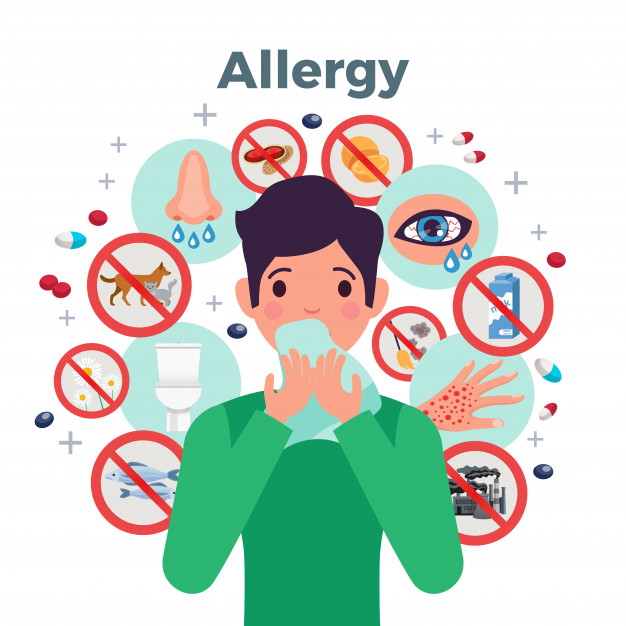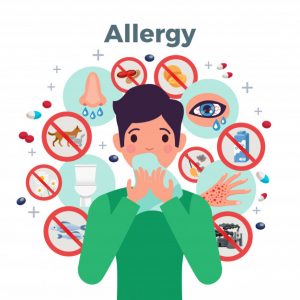What You Need To Know If You Have Allergies

 The common cold and allergies have a lot in common! They both cause sneezing, runny nose, itchy eyes and coughing. However, the former goes away within two weeks, while the latter can be present for months at a time. Read this article for some inexpensive and easy ways to manage allergies.
The common cold and allergies have a lot in common! They both cause sneezing, runny nose, itchy eyes and coughing. However, the former goes away within two weeks, while the latter can be present for months at a time. Read this article for some inexpensive and easy ways to manage allergies.
If your allergies act up in the summer, it is important that you keep your air conditioner clean. Air conditioners hold a lot of dust and mold, and if you do not clean them, your allergies are just going to get worse. Furthermore, try not to sleep right next to an air conditioner, as this can also make your allergies worsened.
If you battle pollen and spores while indoors, avoid leaving your windows open for longer than an hour or two. At the very least, close them between the hours of 5 and 10 in the morning; this is the time of day in which plants and flowers release their highest concentrations of pollen.
When you constantly battle allergies, it pays to devote a little extra time to cleaning the areas in which you live, work and play. For example, you should regularly wipe down any surface that you touch frequently like keyboards, countertops, door knobs and appliances. This reduces the amount of allergens that you come into contact with daily.
Dust mites are mostly likely in your home. They live in your bed linens, bed and pillows. Yuck! Use mattress and pillow case covers with zippers to avoid these. Be sure to wash your bedding weekly in hot water to kill off dust mites.
Understand the fundamental differences between irritants and allergens. Exposure to an allergen provokes a physical reaction in your body in response to an unnatural protein. Irritants include things like paper dust, chemical fumes, perfume and cigarette smoke. These substances are irksome, but they do not carry an actual health risk, most of the time.
Get an allergy test. Knowing exactly what you are allergic to, can be the single greatest advantage you can have in dealing with allergies. Not all pollen is the same. Some people are triggered by tree pollen, others by grass or weeds. What you thought was an allergy to pet dander, may actually be an allergy caused by undiagnosed dust mite or mold problems in your home. Only an allergy test can provide you with definitive evidence of your triggers so you can create an appropriate plan to deal with them.
Avoid paper products and textiles that contain dyes, which are common causes of allergic reactions. This even means toilet paper with designs on it. To rule out a dye allergy, use only white paper products throughout the house. If your symptoms are abated, you will know to use only white paper goods in the future.
Don’t give up on allergy medications if the first one you try doesn’t work. If oral treatments do not help, additional forms are available that might be effective. Over-the-counter products are available as eye drops or nasal sprays; prescription treatment options include leukotriene blockers and powerful steroid nasal sprays.
Keep an eye on your stress levels. A lot of people do not know that being stressed can heighten your allergic reactions. It is is truth, even more so for those who have asthma. Asthma attacks are more likely in those experiencing increased stress levels. Although this will not cure the condition, it will reduce the duration of the attacks as well as the frequency.
If you are planning a trip, and someone in your party has a severe food allergy. Visit a doctor before departing. Request a prescription for an extra epinephrine pen to keep with you at all times. To avoid mix-ups, or delays at airport security checkpoints. Keep a copy of the prescription, and directions with the package.
Try to keep your indoor air as allergen free as possible. It might be tempting to open a window to let the fresh air in, however, when you do this you let the pollen into your home. So keep your windows shut. Also, be sure to change the filters on your air conditioner quite often.
If you love smelling laundry that has dried in the sun, try using laundry detergent with a light fragrance or some fabric softener. You may get a great scent on your clothing when you hang it out to dry. But it may increase the amount of pollen and dust as well. Unfortunately, scented laundry detergents or fabric softeners should only be used by people that do not have sensitive skin.
If you have a dog or cat that goes outside, make sure to wash him or her as often as possible. Outdoor animals tend to bring in all kinds of things from outside, and pollen is just one of the things they carry. Make sure to clean your pet; if possible, have someone else clean your pet to avoid an allergy attack.
When picking out furniture for your home, keep your allergies in mind. Smooth, wipeable surfaces like leather and vinyl are good choices. Wooden furniture is a valid choice, too, especially if it comes with washable cushions or covers. Avoid upholstered furniture that will be hard to keep clean; mites, dust, dander and other irritants can be impossible to remove.
If you have allergies and have been outdoors, remember to remove the dirty clothes from your bedroom because it most likely picked up some airborne pests when you were outside. Put the clothes in a hamper in a different room, so it is not close to aggravate your symptoms.
To reduce your contact with allergens make sure to store items that you will come into close contact with, such as linens and towels, in either an airtight container, or a wood chest. Preventing the contamination of these sorts of items, will reduce the chances of a severe allergic reaction.
Instead of going around in a fog from drowsy antihistamines or staying inside during seasonal changes, learn about your options and take control of your allergies! Avoid the dirty looks you get after sneezing in public by dealing with them once and for all. Remember these tips so you can live with ease.